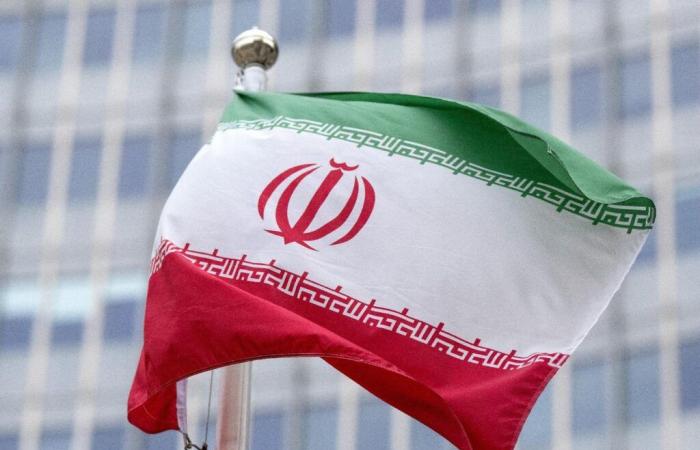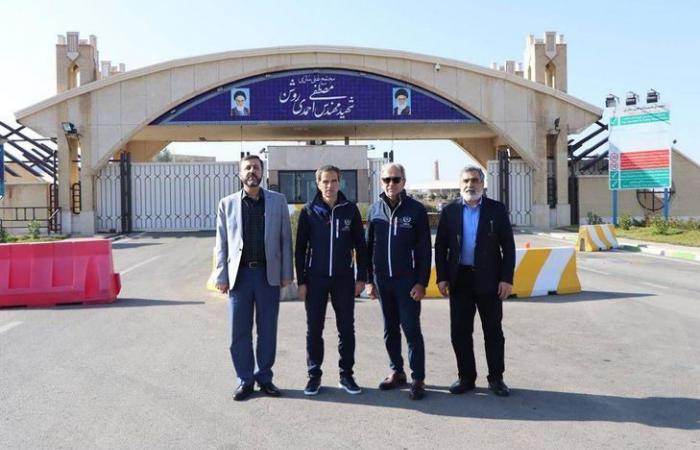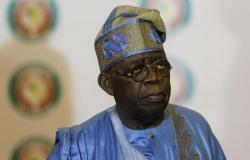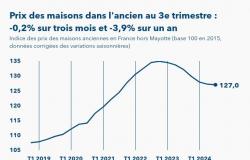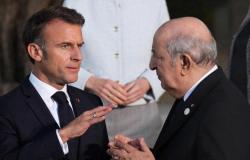Iran will hold discussions on its nuclear program on Friday with France, Germany and the United Kingdom, three countries which have submitted a text condemning Tehran's supposed lack of cooperation on this issue.
Paris, Berlin and London associated with Washington are at the origin of a text critical of Tehran's nuclear program presented during a meeting in Vienna at the headquarters of the International Atomic Energy Agency (IAEA).
The text was approved Thursday by 19 of the 35 member states of the IAEA Board of Governors, provoking the ire of Iran which announced in retaliation the commissioning of “new advanced centrifuges” for its nuclear program.
In addition to this file, Iran will discuss the regional and international situation with France, Germany and the United Kingdom, “including the questions of Palestine and Lebanon”said the spokesperson for Iranian diplomacy, Esmaïl Baghaï in a press release on Sunday.
The exact location of these discussions was not specified.
Iran is a strong supporter of Hezbollah in Lebanon and Hamas in Gaza, two Islamist movements at war with Israel, Tehran's sworn enemy since the advent of the Islamic Republic in 1979.
Tehran defends the right to nuclear power for civilian purposes, particularly for energy, but denies wanting to acquire an atomic bomb, which Western countries suspect.
Lever “doubts and ambiguities”
In 2015, Iran concluded an agreement in Vienna with France, Germany, the United Kingdom, China, Russia and the United States to regulate its nuclear program.
Nuclear installations in Iran / Sylvie HUSSON, Nalini LEPETIT-CHELLA, Sabrina BLANCHARD / AFP/Archives
In return, the text provided for a reduction in international sanctions against Tehran.
But in 2018, Donald Trump, then President of the United States, unilaterally withdrew his country from the agreement – with which Tehran complied, according to the IAEA – and reestablished heavy sanctions against Iran.
In retaliation, Tehran significantly increased its reserves of enriched materials and raised the threshold to 60%, close to the 90% needed to make an atomic weapon, under the IAEA definition.
The nuclear agreement, now an empty shell that negotiations have failed to revive and which will expire in October 2025, capped this rate at 3.67%.
Photo provided by the Atomic Energy Organization of Iran, November 15, 2024, shows the organization's spokesperson Behrouz Kamalvandi (r), Iranian Deputy Foreign Minister Kazem Gharib Abadi (l) and with IAEA chief Rafael Grossi (2nd l) in front of the Natanz nuclear enrichment plant in Iran's Isfahan province / – / Atomic Energy Organization of Iran/AFP/Archives
Iranian President Massoud Pezeshkian, in power since July and a supporter of dialogue with Western countries, said he wanted to lift “doubts and ambiguities” on his country's nuclear program.
Iran thus considers that it has demonstrated “good will” by inviting the head of the IAEA, Rafael Grossi, last week to visit the nuclear sites of Natanz and Fordo (center).

